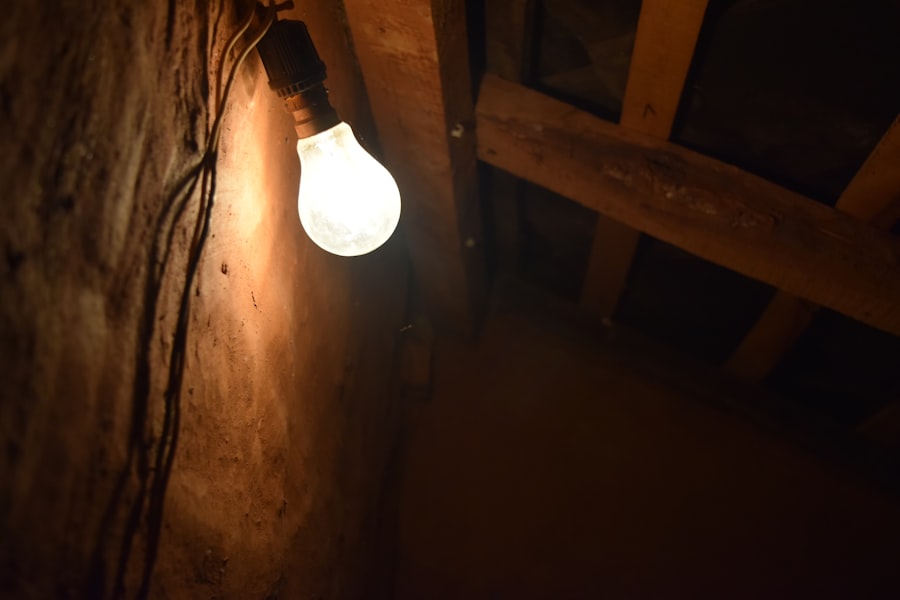Chickens have specific requirements for their well-being, particularly during winter. These include warmth, shelter from harsh weather, and constant access to fresh water and food. Unlike mammals, chickens struggle to regulate their body temperature efficiently, making them more vulnerable to cold.
They depend on their environment to maintain comfort and health. Protection from wind, rain, and snow is crucial, as exposure can lead to illness and stress in chickens. Providing a secure and warm shelter is vital for their winter welfare.
Year-round access to fresh water and food is essential for chickens. In winter, preventing water from freezing is critical to avoid dehydration. A balanced diet is necessary to maintain health and egg production throughout the colder months.
Meeting these fundamental needs is crucial for ensuring the health and contentment of chickens during winter.
Table of Contents
- 1 Tips for keeping chickens warm in the winter
- 2 Common misconceptions about heating chicken coops
- 3 The importance of proper ventilation for chickens in the winter
- 4 Signs of cold stress in chickens and how to address them
- 5 Alternative methods for keeping chickens warm in the winter
- 6 Preparing your chickens for the winter months ahead
- 7 FAQs
- 7.1 What are the temperature requirements for chickens in the winter?
- 7.2 Do chickens need supplemental heat in the winter?
- 7.3 How can I help my chickens stay warm in the winter?
- 7.4 What are the risks of overheating a chicken coop in the winter?
- 7.5 Are there specific breeds of chickens that are better suited for cold climates?
Key Takeaways
- Chickens need a dry and draft-free environment in winter to stay healthy and productive
- Provide extra insulation, such as straw or hay, in the coop to keep chickens warm
- Heating the chicken coop can lead to fires and is unnecessary if proper insulation and ventilation are in place
- Proper ventilation is crucial in winter to remove moisture and ammonia from the coop
- Watch for signs of cold stress in chickens, such as huddling together or decreased egg production, and take action to address them
Tips for keeping chickens warm in the winter
Insulating the Coop
One of the most effective ways to keep your chickens warm and comfortable during the winter months is to insulate their coop. This can be done by adding extra bedding, such as straw or wood shavings, to the floor of the coop. This will help to trap heat and provide a cozy environment for your chickens. Additionally, you can insulate the walls of the coop with foam board or other insulating materials to help retain heat.
Ensuring Proper Ventilation
It’s also important to ensure that the coop is well-ventilated to prevent moisture buildup, which can lead to frostbite and respiratory issues.
Providing a Heat Source
Another effective way to keep your chickens warm in the winter is to provide them with a heat source. This can be accomplished with a heat lamp or a heated pad designed specifically for poultry. It’s important to place the heat source in a safe location where it won’t pose a fire hazard or cause injury to the chickens.
Monitoring Temperature
Additionally, it’s important to monitor the temperature in the coop regularly to ensure that it stays within a safe range for your flock. By taking these steps, you can help your chickens stay warm and comfortable throughout the winter months.
Common misconceptions about heating chicken coops
There are several common misconceptions about heating chicken coops that can lead to problems for your flock. One of the most prevalent misconceptions is that chickens need constant warmth in order to survive the winter. While it’s true that chickens require warmth and protection from the elements, it’s important to strike a balance and avoid overheating the coop.
Overheating can lead to respiratory issues and other health problems for your chickens, so it’s important to monitor the temperature in the coop and provide just enough warmth to keep them comfortable without overheating. Another common misconception is that adding extra bedding to the coop is sufficient for keeping chickens warm in the winter. While bedding does provide insulation, it’s not always enough to keep chickens comfortable in very cold temperatures.
It’s important to provide additional sources of warmth, such as heat lamps or heated pads, especially during extreme cold spells. Additionally, some people believe that chickens can withstand cold temperatures without any additional help, but this is not always the case. It’s important to take proactive measures to ensure that your flock stays warm and healthy throughout the winter.
The importance of proper ventilation for chickens in the winter
Proper ventilation is crucial for maintaining a healthy environment for your chickens during the winter months. While it may seem counterintuitive to allow cold air into the coop, good ventilation is essential for preventing moisture buildup, which can lead to frostbite and respiratory issues. Proper ventilation helps to remove excess moisture from the air, which can accumulate from chicken droppings and respiration.
This helps to keep the air inside the coop dry and healthy for your flock. In addition to preventing moisture buildup, proper ventilation also helps to regulate the temperature inside the coop. Without adequate ventilation, heat can become trapped inside the coop, leading to overheating and discomfort for your chickens.
By allowing fresh air to circulate through the coop, you can help maintain a comfortable temperature for your flock. Proper ventilation also helps to remove odors and airborne pathogens from the coop, creating a healthier environment for your chickens. By ensuring that your coop is well-ventilated, you can help your chickens stay healthy and comfortable throughout the winter months.
Signs of cold stress in chickens and how to address them
It’s important to be able to recognize the signs of cold stress in chickens so that you can address them promptly. Some common signs of cold stress in chickens include huddling together for warmth, shivering, reduced egg production, pale combs and wattles, and lethargy. If you notice any of these signs in your flock, it’s important to take action to help them stay warm and comfortable.
One effective way to address cold stress in chickens is to provide them with additional sources of warmth, such as heat lamps or heated pads. This can help them stay comfortable and maintain their health during cold weather. Another way to address cold stress in chickens is to ensure that their coop is well-insulated and ventilated.
By providing a cozy environment with plenty of bedding and insulation, you can help your flock stay warm and comfortable throughout the winter months. It’s also important to monitor their water supply regularly to ensure that it doesn’t freeze, as dehydration can quickly become a serious issue for chickens in cold weather. By taking these steps, you can help your flock stay healthy and happy despite the challenges of winter.
Alternative methods for keeping chickens warm in the winter

Deep Litter Bedding: A Natural Heat Source
One effective alternative is to use deep litter bedding in the coop. This involves adding layers of straw or wood shavings to the floor of the coop throughout the winter. As the bedding decomposes, it generates heat, helping to keep the coop warm and cozy for your flock. This method also helps to control moisture and odors in the coop, creating a healthier environment for your chickens.
Solar-Powered Heating Options
Another alternative method for keeping chickens warm in the winter is to use solar-powered heating options. Solar-powered heat lamps and heated pads are available that can provide warmth for your flock without relying on electricity. These options are environmentally friendly and cost-effective, making them a great choice for many chicken keepers.
Passive Solar Design: Harnessing Natural Heat
Some people use passive solar design principles when building their coops, orienting them to capture as much sunlight as possible during the day to help keep their flock warm naturally. By exploring these alternative methods, you can find effective ways to keep your chickens warm and comfortable throughout the winter months.
Preparing your chickens for the winter months ahead
As winter approaches, it’s important to take proactive steps to prepare your chickens for the colder weather ahead. One important step is to ensure that their coop is well-insulated and free from drafts. This may involve adding extra insulation or sealing any gaps or cracks in the walls or windows of the coop.
It’s also important to stock up on plenty of bedding material so that you can keep their living space cozy throughout the winter. Another important aspect of preparing your chickens for winter is ensuring that they have access to fresh water at all times. This may involve investing in a heated waterer or checking their water supply frequently to prevent freezing.
Additionally, it’s important to make sure that your flock has access to a balanced diet throughout the winter months. This may involve adjusting their feed rations or providing additional sources of nutrition as needed. In conclusion, understanding and meeting the needs of your chickens during the winter months is essential for keeping them healthy and happy.
By providing warmth, protection from the elements, proper ventilation, and access to fresh water and food, you can help your flock thrive despite the challenges of cold weather. By taking proactive steps and exploring alternative methods for keeping chickens warm in the winter, you can ensure that your flock stays comfortable throughout the colder months ahead.
If you’re looking for tips on keeping chickens warm in the winter, you might also be interested in learning about the Producers Pride Sentinel Chicken Coop. This article discusses the features and benefits of this specific coop, which could be a great option for providing a warm and secure environment for your chickens during the colder months. Check it out here.
FAQs
What are the temperature requirements for chickens in the winter?
Chickens are generally comfortable in temperatures ranging from 45-85°F (7-29°C). However, they can tolerate lower temperatures if they are acclimated to them gradually.
Do chickens need supplemental heat in the winter?
In most cases, chickens do not need supplemental heat in the winter as they have natural ways of keeping warm such as fluffing up their feathers and roosting together. However, in extremely cold climates, supplemental heat may be necessary for young chicks or older chickens.
How can I help my chickens stay warm in the winter?
You can help your chickens stay warm in the winter by providing them with a draft-free and well-ventilated coop, using deep bedding for insulation, and ensuring they have access to fresh water and a balanced diet to maintain their body heat.
What are the risks of overheating a chicken coop in the winter?
Overheating a chicken coop in the winter can lead to excessive moisture and condensation, which can cause respiratory issues for the chickens. It can also disrupt their natural acclimation to the cold and make them less able to handle temperature fluctuations.
Are there specific breeds of chickens that are better suited for cold climates?
Yes, some chicken breeds are better suited for cold climates due to their thick feathering and cold-hardy characteristics. Examples of cold-hardy breeds include the Plymouth Rock, Orpington, and Wyandotte.
Meet Walter, the feathered-friend fanatic of Florida! Nestled in the sunshine state, Walter struts through life with his feathered companions, clucking his way to happiness. With a coop that’s fancier than a five-star hotel, he’s the Don Juan of the chicken world. When he’s not teaching his hens to do the cha-cha, you’ll find him in a heated debate with his prized rooster, Sir Clucks-a-Lot. Walter’s poultry passion is no yolk; he’s the sunny-side-up guy you never knew you needed in your flock of friends!







